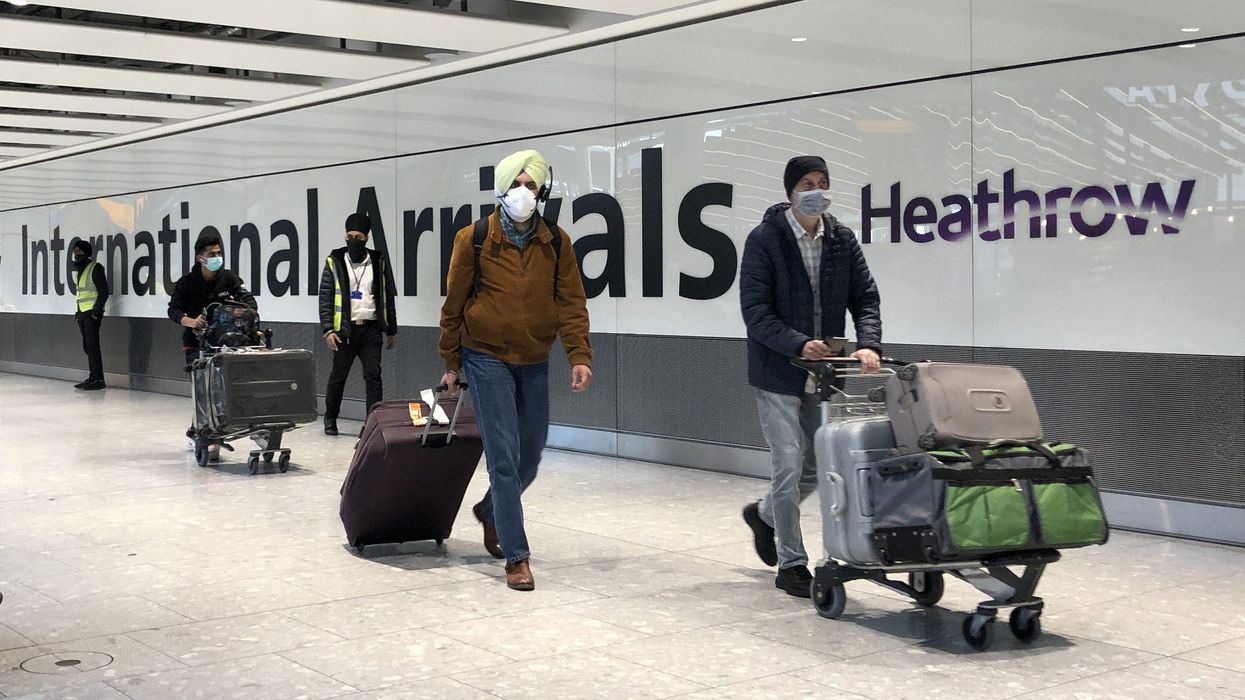TRAVEL agents said they have been “inundated” with flight bookings to India after the UK government moved the country from the red to the amber list, with some predicting the sharp increase in bookings could last months.
India, Bahrain, Qatar and the United Arab Emirates (UAE) were moved to the amber list from the stringent red list last Thursday (5). The decision means fully-vaccinated Britons and children up to the age of 18 will no longer have to pay to quarantine in a hotel for 11 days.
All changes came into effect last Sunday (8). Shortly after the announcement, UK travel companies said they saw a sharp rise in bookings. Last Thursday, London’s Southall Travel issued more than 2,000 tickets to India.
Jaymin Borkhatria, Southall Travel’s chief commercial officer, told Eastern Eye the business saw a rough estimate of £1.5 million turnover in one day. He believes the increase in bookings (for both India and the UAE) could last for months. “The major cities in India are fine now, they don’t have any issues,” he said, in reference to the second coronavirus wave which devastated the country earlier this year.
“Now the majority of people (in the UK) have been double jabbed, so they’re not really worried because once you’ve had the vaccines, (the Covid symptoms) are more like having a small case of the flu.”
Deepak Nangla, managing director of Brightsun Travel, told Eastern Eye the business has seen a 40 per cent rise in bookings since the UK government’s announcement.
The largest increase is from passengers stuck in India who are waiting to come back to the UK without having to quarantine, he said. Nangla thinks the increase will likely stabilise after two weeks.
“This is because airlines can hopefully start to increase their capacity and schedules, in line with demand,” he explained, noting capacity had been affected as the Indian government is only allowing a handful of airlines to carry passengers. These airlines are British Airways, Air India, Virgin Atlantic and Vistara.
He added: “Customers are still confused about the PCR tests that they have to take, and the different restrictions in different states across India – however, as we are aware of all the ever-changing rules, travel agencies like ourselves can advise on this, which is why travellers are now seeing the value – with the expertise and customer care provided.”
He believes there will be a significant increase of business passengers (who have been double vaccinated), which would be followed by regular bookings from travellers wanting to visit family and relatives.
However, Nangla noted the number of holiday makers and tourists would not get back to normal levels immediately. “Tourism may be some time away before reverting to previous levels as it will take time to vaccinate India’s immense population,” he said.
His views are similar to those by Chetan Shah, finance director at Sona Tours. The tour operating company said it has not seen a rise in bookings to India, which he puts down to people still being wary of Covid cases. “It will be mostly people going to see family, rather than going on holiday,” he told Eastern Eye.
Shah said he doubted tour bookings to India will rise throughout the year. “It still isn’t going to be as easy as flying in and out, as normal,” he said. “There are still a lot of formalities you need to go through.”
Borkhatria said he hoped India will remain off the red list for the long-term. “I’m very, very pleased (by the announcement) and I’m hoping this will stay,” he said. “However, I don’t think there’ll be any further issues because both the countries, India and the UK, have been through (Covid-19 waves) and I would like to believe they have the immunity now.”
Transport secretary Grant Shapps said last week the UK government is “committed to opening up international travel safely, taking advantage of the gains we’ve made through our successful vaccination programme”.
He added: “While we must continue to be cautious, today’s changes reopen a range of different holiday destinations across the globe, which is good news for both the sector and travelling public.”




